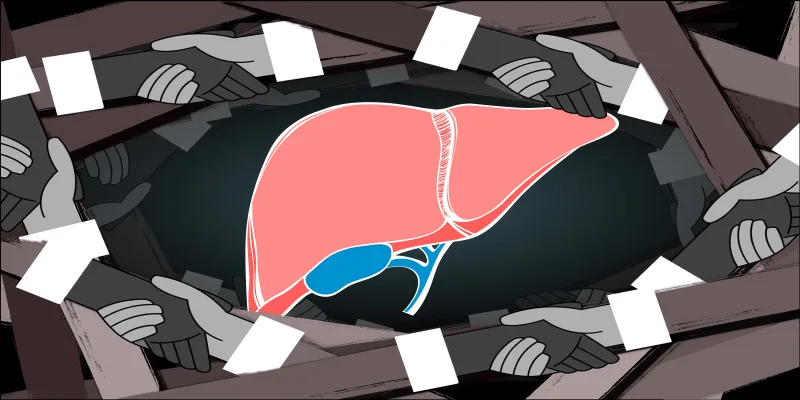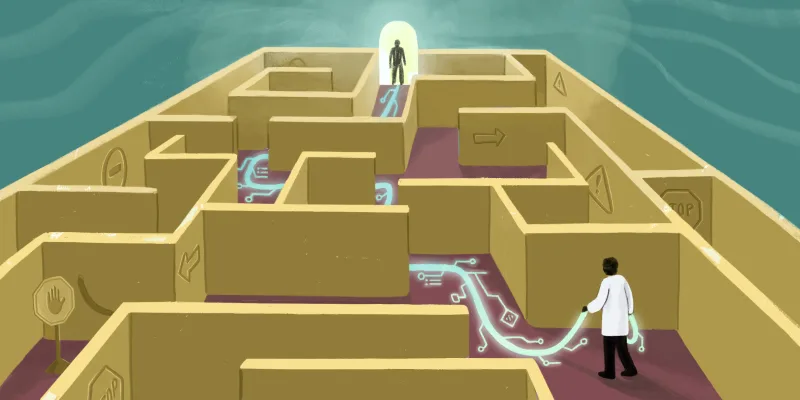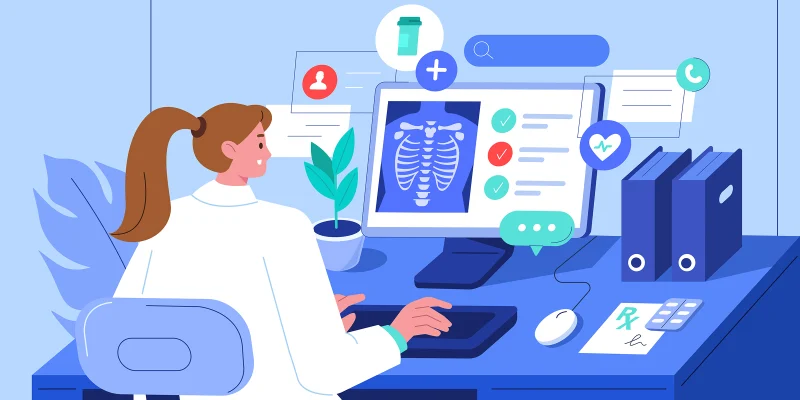I was thinking about what it’s like to work in health care these days, and it happened. A flash of clarity. My fragmented thoughts fell into alignment as I was listening to the song “Race For The Prize” by The Flaming Lips. In the simplest sense, this is a song about two scientists in a race for a vague “prize” … but at what cost?
I had the song on repeat over the next few days, and certain lyrics jumped out at me; I’m sharing them here. In the swirly, wild world of The Flaming Lips (if you’re not familiar, think lush musical arrangements, over the top live shows with puppets, streamers, confetti cannons, and more), these may be theoretical points. But when you apply them to real world situations, to you and me, they take on a new meaning.
“Forging for the future / But to sacrifice their lives / Both of them side-by-side / So determined”
When we are just starting out in this business — student, new grad, resident — we anticipate sacrifice. Years spent reading, testing, going through clinical rotations, until it feels almost as though our brains can’t hold any more information. We abide by standards that are impossibly high. Pressure, high pressure, is a constant. Delayed gratification becomes our middle name — missing important events, missing early earning opportunities, missing social milestones. But we remain determined; it’s the only way to cross that finish line.
Whether we are told explicitly or we infer, there is a promise. Once we do cross this metaphorical finish line, there will be a prize, it will have been worthwhile. That alone can be enough to sustain us; in many cases, I believe it is.
What happens when those specific external factors — school, rotations, fellow students — fall away? Do the pressures also fade? Do we suddenly know how to handle these stressors, navigate around them, or avoid them entirely? I have yet to see these pressures spontaneously resolve. They may lessen, but there is a residue that does not fade without intervention.
“Theirs is to win / If it kills them”
We enter practice ready for the prize for which we have worked so hard. For some, I’m sure that the landscape of practice is precisely what was expected. Anecdotally, I believe that it’s vastly different from what most of us envisioned as we started our races.
We may have thought “the race” would be over — only to find that it is anything but. We knew that we would never stop learning, but did we think that we would be learning how to cope with brand new complicated tasks on the job with limited guidance at best? Prior authorizations, panel sizes twice the size of what you were promised, navigating a labyrinthine EHR — did you miss that day in school, too?
We expected to be untangling complex chronic conditions and medication lists as long as our arm. Did we expect the patients to be able to ask questions directly to us, at any hour of the day or night, with an expectation of a full and near-immediate response (without a visit)? Did we expect to be graded on our customer service?
We expected to be challenged — but not from a payer. Or the endless clicking of the chart. Or the sheer volume of nonclinical work (they don’t call it “administrative burden” for nothing).
Intense days, long hours, time spent after hours and on weekends. Check, check, and check. All things we saw coming (and likely saw modeled for us during our clinical training). Also all things that contribute significantly to burnout. Career killers.
“They’re just humans / With wives and children”
I believe, deeply, that we all want to do a good job. We want to do right by our patients. We want to help people. But is it fair, is it ethical, for us as a profession to do that at our own expense? Is that a form of self-sabotage? We are not machines; to expect machine-like precision and performance from us, ad infinitum, is unrealistic and harmful. To accept these terms is equally harmful.
As licensed, board certified, practicing professionals — no longer students — where do we draw the line? That’s a lesson that we aren’t taught in school, and it doesn’t appear to be one that we learn on the job. When there are rates of burnout nearing 50%, and the perception of being overloaded with work around 40%, it’s undeniable that the way things are isn’t working for most of us. I doubt we invested years of our lives and tens to hundreds of thousands of dollars to risk burnout, especially early in our career.
The solution? Maybe that’s the prize that we should try racing for next.
Let’s abandon the race for the more that benefits the few and shift to one that does no harm to the patients or the clinicians. Conventional approaches to change haven’t paid off in the way that we hoped as clinicians. Maybe it’s time to inject an unconventional perspective and come at all of the things that we all agree we need to fix from an entirely new angle. I suggest working from the ground up.
Let’s start by actually talking about these things — out loud. To each other. To administrators. To our professional organizations. To our patients. We want our patients to tell us when things aren’t right; we can model that behavior by raising our voices.
The clinicians I have worked with tend to suffer in silence; they might vent to a trusted colleague, but to raise their voice in an official capacity is much more rare. Being perceived as “not capable” can be enough to keep us quiet. Feelings of impostor syndrome, being perceived as inadequate — those can be weaponized to keep us quiet, and I suspect that they have been. There is strength in numbers, and until we recognize how common these feelings are, and how many of us are treading water in a system that considers us last, we are not going to win this race.
What song do you think encapsulates working in health care? Share in the comments.
Jessica Reeves is a nurse practitioner as interested in the well-being of her fellow clinicians as that of her patients — and she's on a mission to make the work world a better place to live. She writes, works, and lives in the town that holds the world record for most lit jack-o-lanterns (really). Follow her at jessicareeves.net. Jessica is a 2023–2024 Doximity Op-Med Fellow.
Image by GoodStudio / Shutterstock







